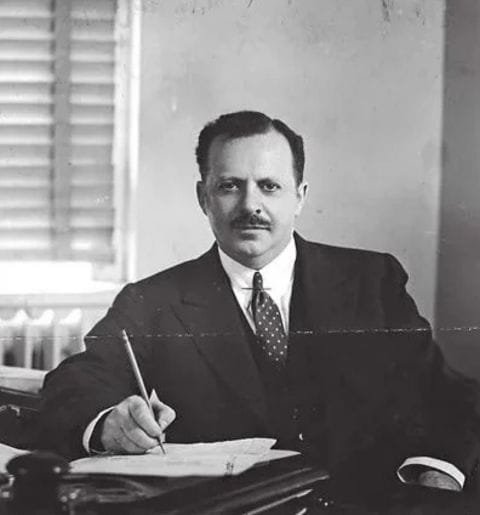
Edward Bernays
Edward Louis Bernays (November 22, 1891 – March 9, 1995) was an American pioneer in the field of public relations and propaganda, often referred to as the “father of public relations.” Born in Vienna, Austria, he moved to New York City with his family when he was one year old. Bernays was the nephew of Sigmund Freud, which influenced his understanding of psychology and its application in communication.
He graduated from Cornell University in 1912 with a degree in agriculture but quickly shifted his focus to publicity and public relations. Bernays gained early experience working for the U.S. Committee on Public Information during World War I, where he developed strategies for shaping public opinion to support the war effort. After the war, he established his own public relations firm and became known for innovative campaigns that leveraged psychological principles.
Bernays authored several influential books, including Crystallizing Public Opinion (1923), Propaganda (1928), and Public Relations (1952), which laid the groundwork for modern public relations practices. His campaigns included promoting female smoking by branding cigarettes as “Torches of Freedom” during a 1929 parade and popularizing products like Ivory soap through creative marketing strategies.
Throughout his career, Bernays emphasized the importance of understanding audience psychology and used social sciences to influence public perception. He continued to work in public relations until his later years and remained an advocate for ethical practices in the industry. Bernays passed away at the age of 103, leaving a complex legacy that includes both significant contributions to marketing and criticism for manipulating public opinion.
- Public Relations, Propaganda
- 1891
- Male
- 1
-
(0)By : Edward Bernays
Propaganda
In Propaganda, the unseen gears of modern society are laid bare—revealing how public opinion is not discovered, but designed. With chilling precision, it explores how invisible hands shape beliefs, habits, and even desires, turning democracy into a theater of managed consent. Is freedom still freedom if our thoughts are orchestrated by unseen forces? At once clinical and provocative, this book whispers a dangerous truth: those who understand persuasion rule the minds of the many. A mirror and a warning, it beckons the reader to question not only what they think—but why they think it.
- Originally Published: 1928
- Publisher: iG Publishing, 2004
- Genre: Non-fiction
- Pages: 175
- Book Type: Hardcopy
- ISBN: 978-0970312594
- Access: Members

